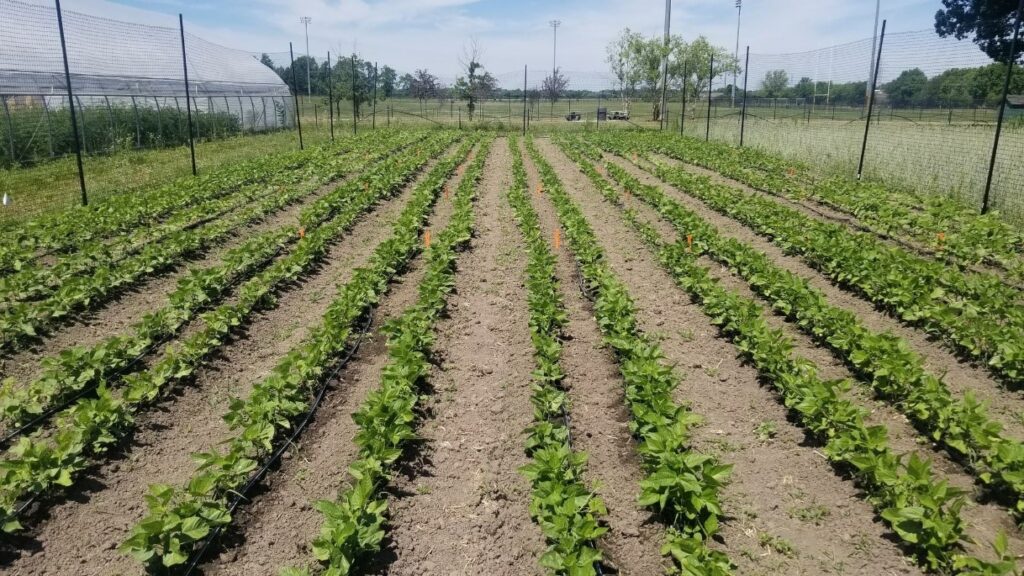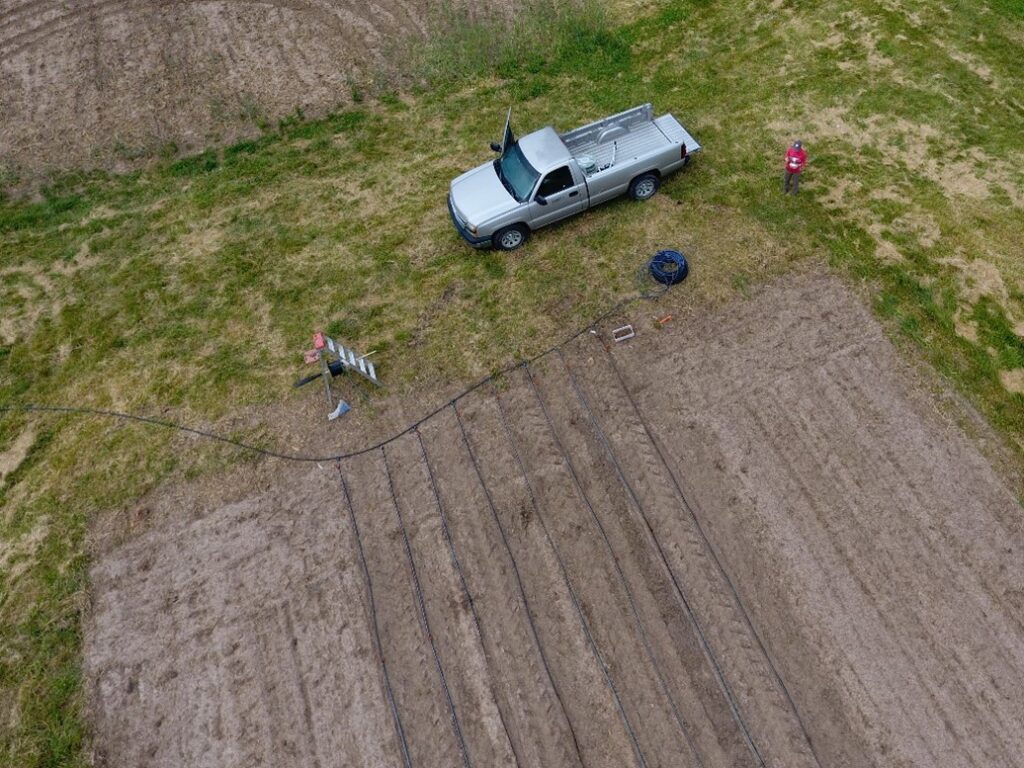The following is from the Purdue Extension ANR Newsletter for July, 2022.
Ashley Adair, Extension Organic Agriculture Specialist, has been busy with all of the things that come with the role of a new extension specialist – teaching, planning events, visiting growers, brushing up on the scientific literature, and deciding where to steer the Organic Agriculture Extension program next. In addition to working on events focused on organic row crops this summer, Ashley has planted a field trial that melds organic grains with the small farm – dry beans.
The nearest place that dry beans are grown on a commercial scale is Michigan, but a few organic grain growers in Indiana have tried them out with varying levels of success. Dry beans can be finicky to grow, but they are a leguminous, food grade crop that can be used to diversify a farm’s crop rotation. And why not on the small farm?

Dry bean variety trial at the Purdue Student Farm site. Beans are planted in double rows on shaped beds and watered with a drip irrigation system. Photo by Chris Adair.
Ashley is focusing on two major goals in the Organic Agriculture Extension program. The first is soil health, which should be a top priority on any farm, but particularly on organic farms where tillage is typically relied upon for weed control. The second is diversification of agriculture across Indiana, regardless of farm size. Growing dry beans addresses both of these goals – growing a legume as part of the crop rotation, which benefits soil health, and potentially mapping a new marketing avenue for growers of all sizes.
With this project, Ashley hopes to find out if organically-produced dry beans are a feasible option for small farmers to diversify their crop rotation and their produce marketing strategy. Four dry bean varieties were chosen for the project, both for their growth habit and their cooking characteristics – Black Coco, Calypso, Jacob’s Cattle, and Tiger’s Eye. Dry beans store particularly well if harvested and dried properly, and provide a great source of protein and fiber for the consumer’s diet. But as with any project, there will be challenges – some foreseen, others unpredictable.

Planting and installing irrigation on 6/10 with the help of Purdue Student Farm’s Alfonso Rosselli at Pinney Purdue Ag Center in organically-managed plots. Photo by Ashley Adair.
During this project, we have already learned how sensitive dry beans are to planting depth and weed pressure in practice. The trial at Pinney had to be replanted 12 days after the first attempt due to high weed pressure and poor germination, likely due to shallow planting restricted by a compaction layer. Ashley is working with another Horticulture and Landscape Architecture colleague, Dr. Liz Maynard, to determine a sensible cover cropping strategy to help alleviate weed pressure and compaction for future work in these plots.